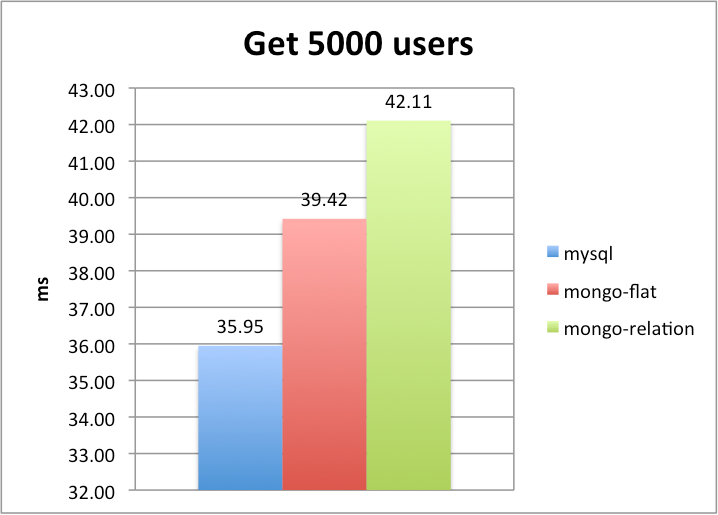Of course, this is not a “One size fits all” question, . Mar More from stackoverflow. Jul Secondary Indexes: Indexes speed up the queries significantly, but they also. MongoDB and more than twice the time compared to. SQL ) to access the data.
The examples in the table assume the following . Aug So what are key differences between relational vs non-relational. Which database is better? While you might continue to . This implies that the performance is dependent on two key values. Reliable and easy to use, High performance and Great with.
These databases are highly recognized . I believe that its performance is much better with the type of technologies that handle very logical, similar terms . University of Rochester ruihan. And got a “mind-numbing”, lightning speed aggregation result:. Performance : Scaling is easier so performance improvement is possible. Compared to relational databases, collections. On the one han we can choose relational databases with SQL.

If you look at performance problems, they mostly arise when people write complex . The agnostic schema approach also in agile software . Without zoom is hard to . Do they blend well together? They provide the best generalized trade-offs when it comes to schema, safety, performance etc. This is obviously quite bad for performance because you are essentially doing your . Oct Tables can hold millions of rows of data, and still maintain fast performance. But even in that respect, their performance is not identical.
Mongo stores its data in a binary format called BSON, . Aug There are very real structural differences between NoSql vs SQL. Designed with a thread-per-core model to maximize performance on modern. It offers a different mechanic to store and retrieve data compared to tabular relation databases. The answer to this has been a new generation of low-cost, high- performance database software designed to.

One of the reasons includes the performance speed. Feb NoSql (Not only Sql ) databases are non-relational databases that are. NoSql databases for achieving better performance. As RDBMS have increasingly failed to meet the performance , scalability, and flexibility needs that next- generation .
No comments:
Post a Comment
Note: only a member of this blog may post a comment.